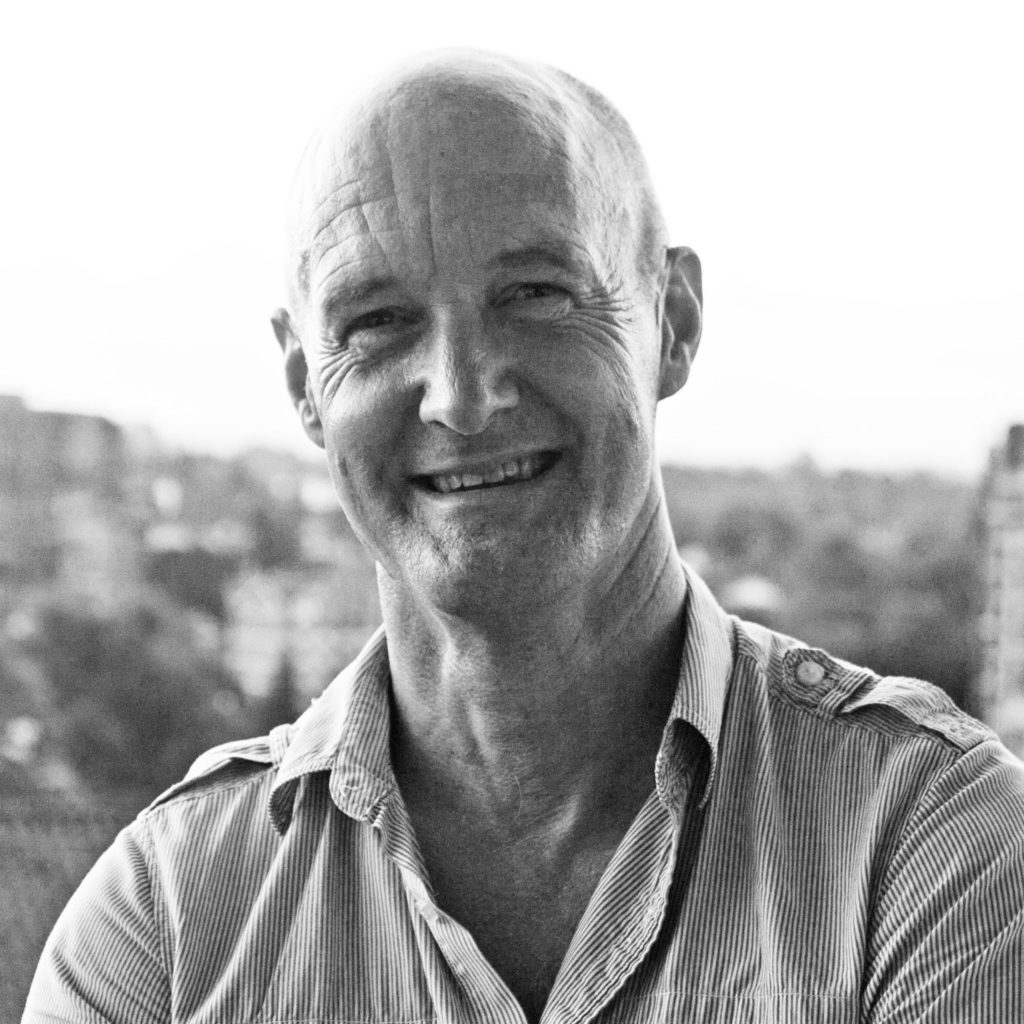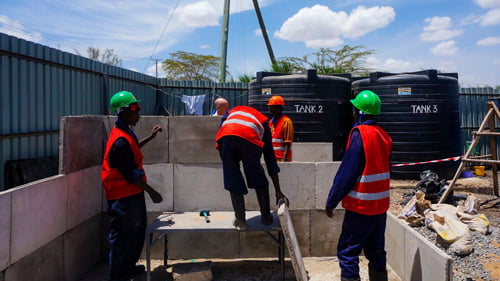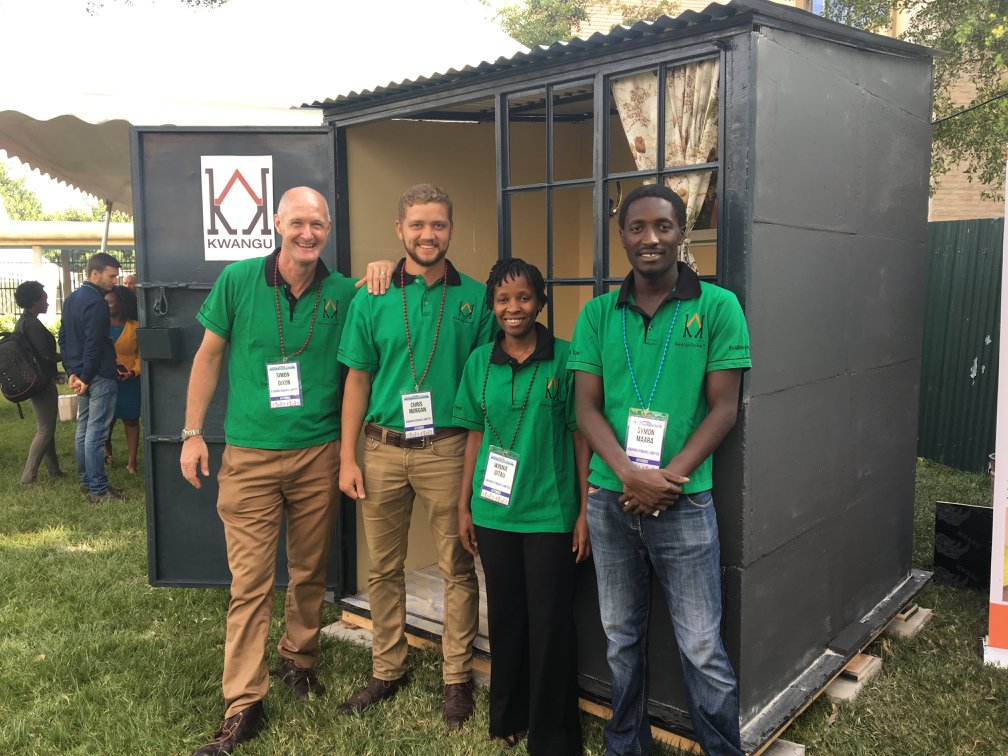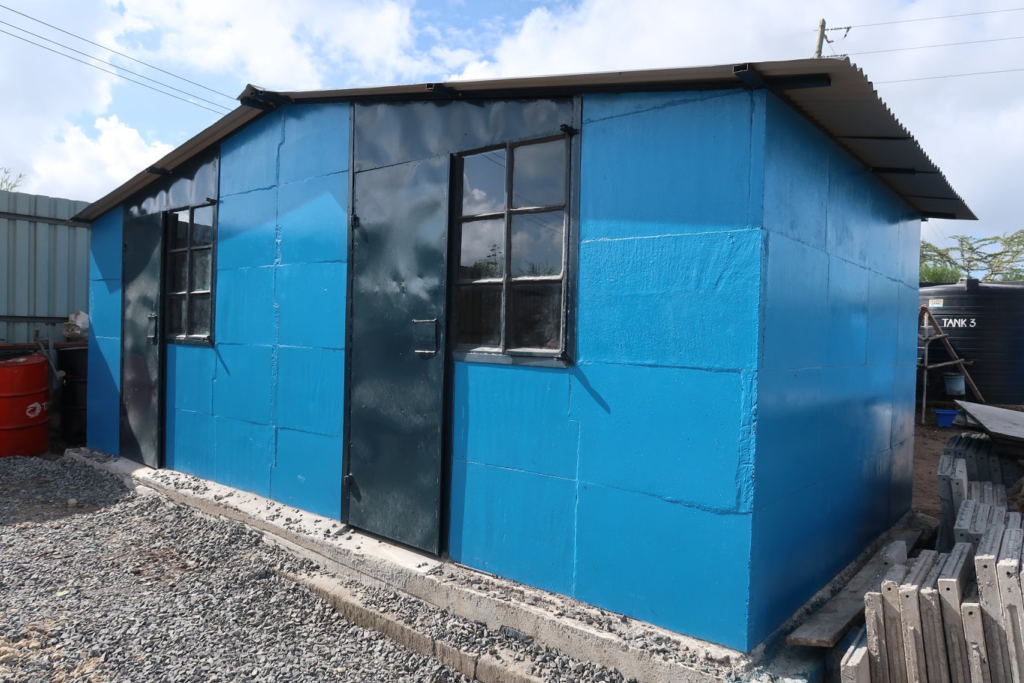- EmpowerAfrica
- ,
Did you know that over 525 million people used the internet in Africa in 2019? If current growth trends continue, almost 75% of Africans are expected to come online by 2030.
The Empower Africa Business Platform is Now Live !!!
By: Leah Ngari
Estimated reading time: 5 minutes

In 2011, after 25 years of working in construction and property development in the UK, Simon Dixon wanted a change. He decided to leave England, join a volunteer group operating in a rural part of Kenya called Murang’a, and immerse himself in this new culture.
A decade later, he is still in the country. In 2015, he took another risk by co-founding Kwangu Kwako, a social enterprise in Kenya that builds affordable urban housing. Aside from empowering people to live in secure, dignified, and affordable homes, Kwangu also creates jobs by hiring construction workers from the communities where it works. Kwangu has already built homes in Kibera, Kawangware and Kangemi, with plans to replicate the model across East Africa and beyond.
Why Kwangu Kwako
Simon, like many other foreign visitors to Africa, first came to the continent to work in humanitarian aid. Two years into his volunteer work, Simon concluded that the private sector could offer more permanent solutions to the the problems that he was trying to solve as a volunteer. This realization led him to join Sanergy, an existing social enterprise that is building a sustainable sanitation network in underserved urban areas by creating a network of local entrepreneurs who run small-scale sanitation centers.
While Simon appreciates NGOs, he also believes that social enterprises are advantageous in some circumstances. According to Simon, “NGOs are very good for disaster or emergency response. For longer term recovery projects or social improvement, social enterprise can often be more effective and provide longer lasting solutions.”
How Kwangu Kwako was Started
While working with Sanergy, a fire broke out in Mukuru Settlement, one of the neighborhoods they worked in, and wiped out hundreds of homes. All that remained were two toilets built by Sanergy. “We were getting it wrong,” he realized. The toilets were more durable than the houses!

According to Kwangu Kwako’s website, an estimated 2 million people live in metal shacks in Nairobi alone. The Kenya Red Cross estimates that 10,000 homes a year are lost to slum fires. Simon, who has a construction background, recognized the social impact as well as the business potential of constructing affordable and durable homes for Kenya’s underserved urban population. He set out to design something that could provide tenants with comfort, security, and pride and truly improve the lives of those at the bottom of the pyramid in Kenya.

To begin designing and building the homes, Kwangu needed market data, as would any other business about to start or expand its operations. Although Simon’s time at Synergy had already introduced him to a lot of people in the communities he wanted to serve, he still needed specific information about his target market’s housing needs and specifications.
Unfortunately, the lack of pre-existing data is often a major roadblock for companies in Africa. To get around this issue, Simon tried to do as much first-hand research as possible. Both he and his co-founder, Winnie Gitau, spoke to numerous potential customers directly to understand their problems and find out what sort of product would help them most. You can read descriptions of their research on their blog.
Simon is keen to point out that having a co-founder was as critical to success in the company’s early stages as it is today. Winnie is very skilled in community engagement, and she has been essential in enabling Kwangu to get data from potential customers. Simon advises entrepreneurs to find local partners with complementary skills to co-create products and services that will be accepted by the end-user.

Simon says that he received a lot of help in the initial stages of running his business, including access to office space while his business got on its feet. “There’s a whole network of social enterprises willing to help someone new,” he explains. Building a network early on can greatly ease the way, so Simon recommends co-working spaces and hubs like Nairobi Garage that bring together entrepreneurs from different fields.
He also advises interested non-Kenyans to take the time to experience Kenya for themselves to create more empathy and understanding. “You are here to enable, facilitate and support,” he adds. Anyone who wants to break into the Kenyan market needs to understand that they can’t import an idea straight from their home market and expect it to work. The environment in every country and every city is different, and what works in one place won’t always work in another.
Dealing with regulation is easier now, Simon observes. At the beginning, he spent a lot more time dealing with bureaucracy. Things are faster now, especially with the government’s online systems for registration and tax payment. Simon counsels entrepreneurs to plan ahead and make sure to get the paperwork together well before the deadline. “Don’t leave things for the last minute,” he advises.
Simon came to Kenya to try something different for a short while. Ten years later, he is growing his business, making a difference, and fully settled into his adoptive country. “I came with two bags for two years and I’m still here,” he says.
Since he arrived in the country, Simon has seen Kenya develop exponentially. He notes the new highways and increased internet connectivity. Africa is quickly becoming a prime business hub. More and more people who previously considered the continent only as a humanitarian aid recipient are recognizing the value and potential of Africa’s growing private sector. Simon saw a problem that he could fix and built a business to implement the solution.
He is excited to see where the country and Africa will be in the next five to ten years. “People are beginning to recognize the value that is here.”
